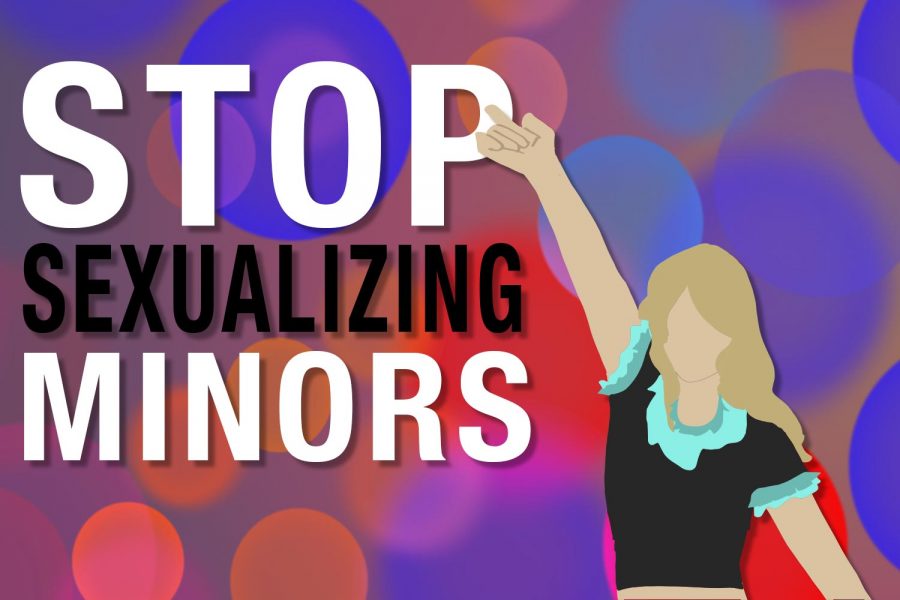Growing up too fast
Looking at the harmful effects of sexualizing underage teens in the media
Photo by Allyson Smith
Graphic illustration
September 15, 2020
Nowadays, it’s not uncommon to see a show where little girls are forced to put on suggestive clothing or a teen is encouraged to flirt with a much older person. It’s something viewers are so used to seeing in the media that they barely recognize how it can be harmful to its young audience.
However, whether noticeable or not, sexualizing teens in the media has its effects on how teens are perceived, how younger actors are treated for it and how viewers watching will see the show, and it is time to start talking about why it should be stopped.
“We are taught that [sexualizing teens] is not right, so I think we mentally see them as ‘mature for their age,’ which can get very dangerous because people could start using that logic in real life,” sophomore Savannah Hallenbeck said.
When characters are put into situations uncommon for their age, the line between a kid and an adult and what’s appropriate for each blurs, and it makes it hard to remember that viewers are watching children participating in these scenes, not adults.
While it may seem like no big deal for a fictitious character to be shown this way, when fantasy and reality start to blend together, the treatment of the character may bleed over onto the actor personally. Young actors constantly go on social media begging to be noticed for their talents instead of their bodies and sexuality.
An example is Millie Bobby Brown, an actress from the popular show “Stranger Things,” commenting that when she was only 16 how uncomfortable she felt constantly being sexualized by the public and how she wished people would focus more on her performance instead of her body.
“Adults in their 30s [portraying teens can] cause a lot of body issues [with teens], wondering ‘Why don’t I look like that,’” sophomore Sophia Hallenbeck said.
The actors aren’t the only ones affected; Young viewers are as well. There’s no doubt that when watching a favorite show, people might try to resemble the characters that they respect, but when children admire characters their age written in a sexual manner, they’ll still compare themselves and try to act similarly. They might want to flirt with older people or have the body of an actor they saw on screen.
When they do this to get that feeling of acceptance, it teaches them wrong ideas and encourages them to sexualize themselves. Of course, not everybody will try to imitate these shows, but those who do will feel the effects it has on them and the changes it makes them want to go through.
Sometimes when someone is mindlessly watching a show or movie, they overlook teens being portrayed in a sexualized manner. Some may raise an eyebrow or make a comment, but most ignore it and continue watching the program.
The problem with turning a blind eye is that it doesn’t eliminate the problem, it continues to influence viewers and actors and to normalize the issue. This shouldn’t happen, and it is time to start calling out the oversexualizaton of teens in the media and try to right this wrong as people create more content for everyone to see.
















